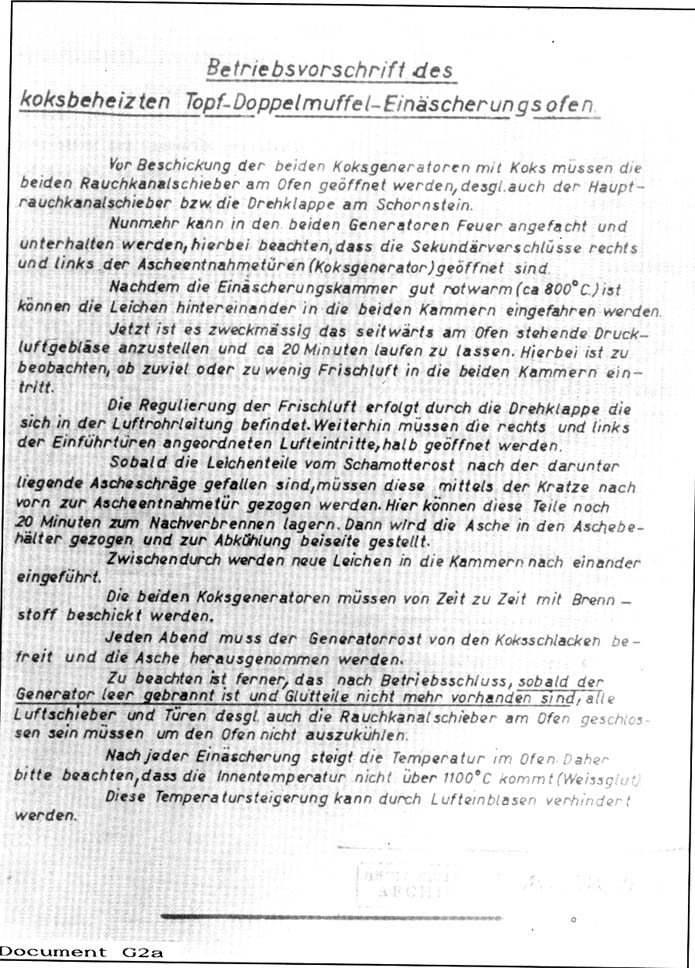| Document G2a |
 |
Document G2b
[PMO File BW 11/1, page 3] |
OPERATING INSTRUCTIONS FOR COKE-FIRED TOPF
DOUBLE-MUFFLE INCINERATION FURNACE |
Before charging the two hearths with coke, the two furnace dampers and the main rotary damper in the chimney must be open.
The fire can now be lit and maintained, being sure to open both secondary openings to the right and left of the cinder removal doors (of the coke furnace).
Once the cremation chamber (muffle) has been brought to a good red heat (approximately 800°C), the corpses can be introduced one after the other in the cremation chambers.
Now the pulsed air blower situated to the side of the furnace should be switched on and run for about 20 minutes, ensuring that the two cremation chambers do not receive too much or too little fresh air.
Regulation of the fresh air is by means of a rotary valve in the air duct. In addition, the air intakes, to the right and left of the chamber doors, should be half open.
As soon as the remains of the corpses have fallen from the chamotte grid to the ash collection channel below, they should be pulled forward towards the ash removal door, using the scraper. Here they can be left for a further 20 minutes to be fully consumed, then the ashes should be placed in the container and set aside to cool.
In the meantime, further corpses can be introduced one after the other into the chambers.
The two coke furnaces must be fed with fuel from time to time.
Every evening, the furnace fire bars must be cleaned of clinker and the cinders removed.
In addition, care must be taken that at the end of operations, as soon as the furnace. having burnt everything. is empty and no coals remain, that all the air valves, doors and dampers are closed, so that the furnace does not cool.
After each incineration, the temperature rises in the furnace. For this reason, care must be taken that the internal temperature does not rise above 1100°C (white heat).
This increase in temperature can be avoided by introducing additional fresh air. |
|

